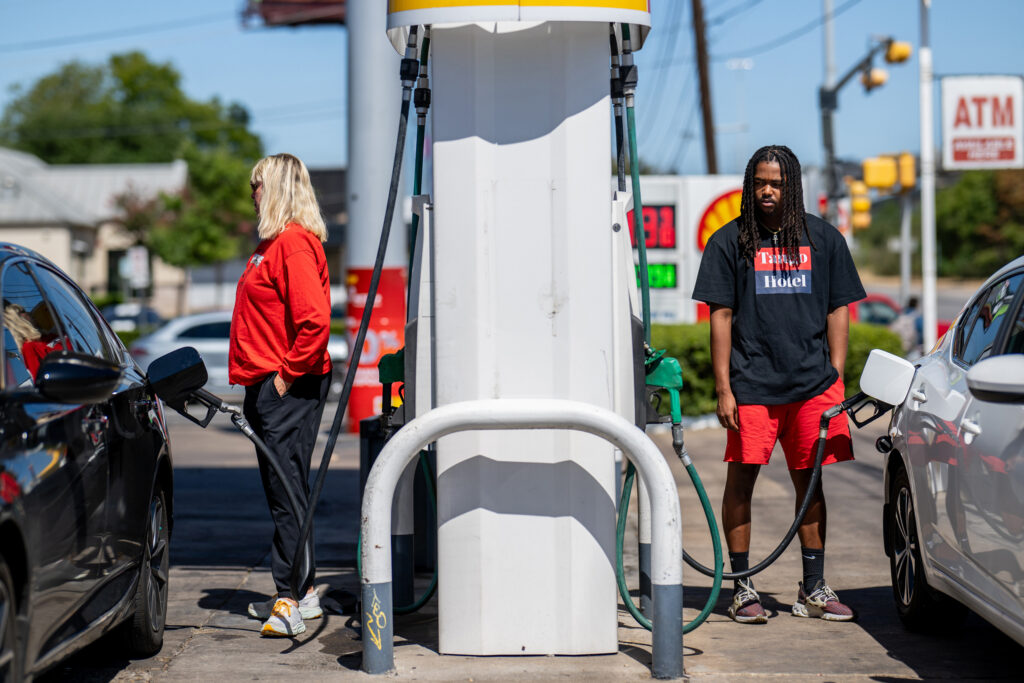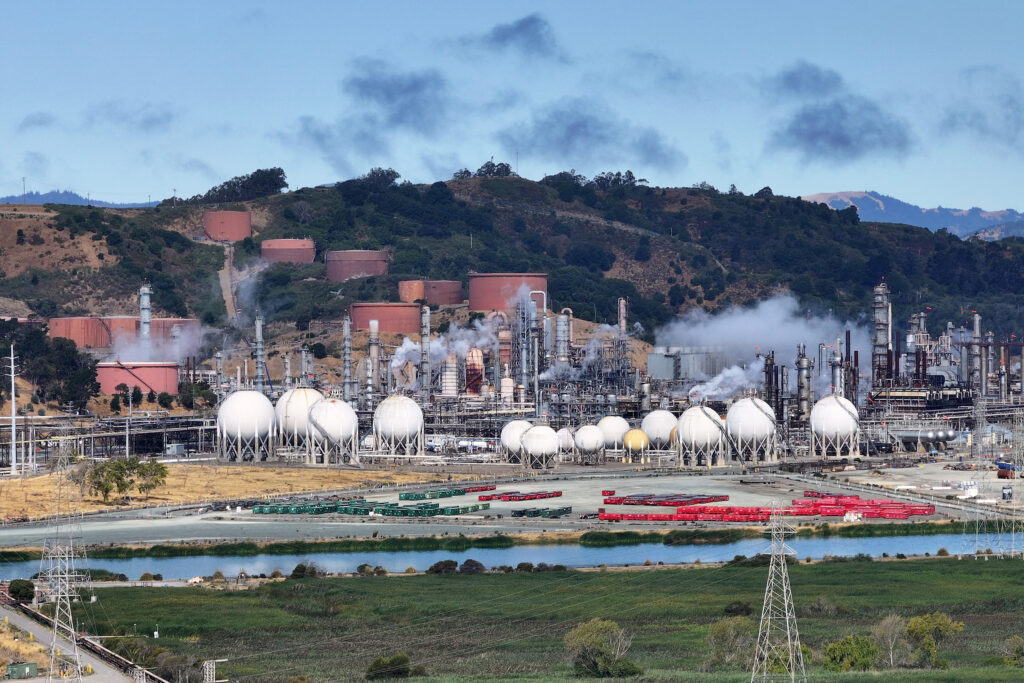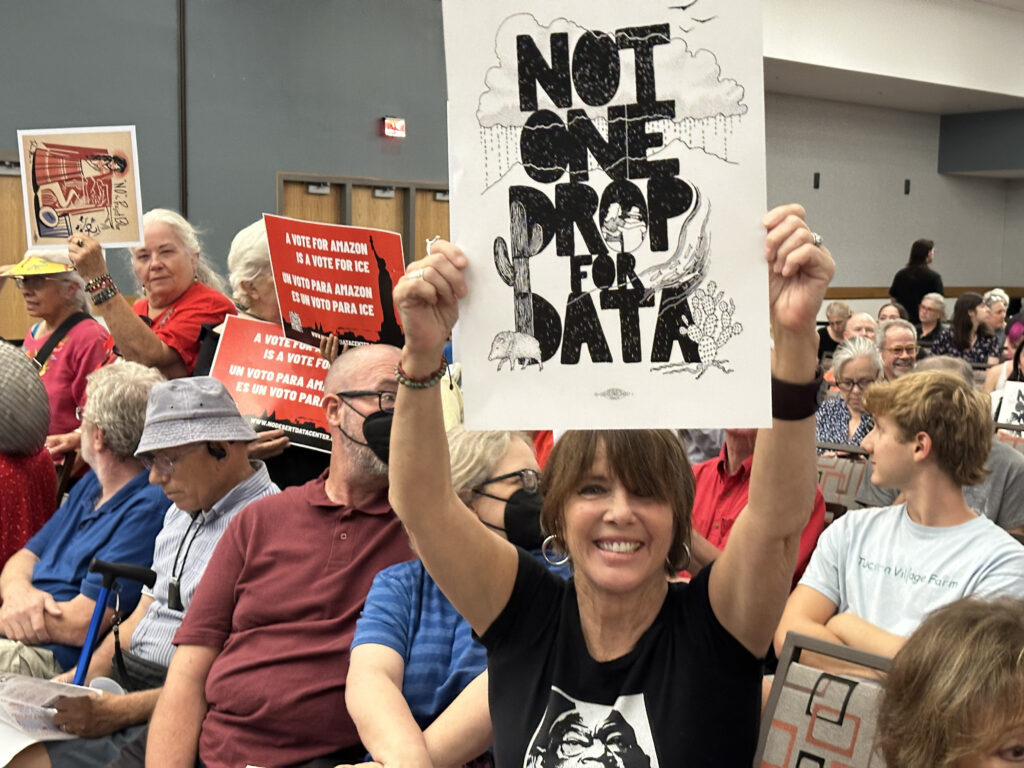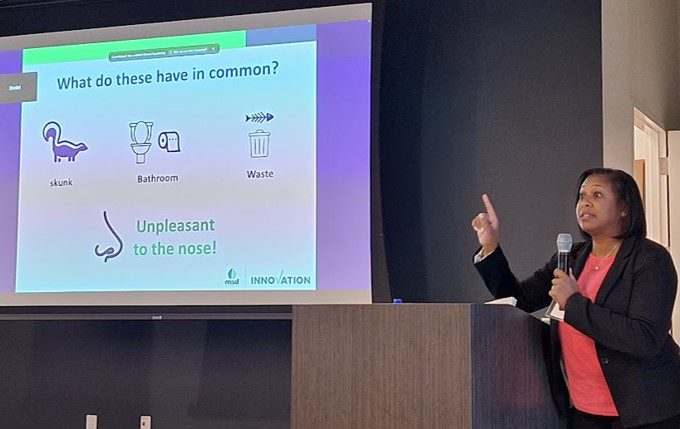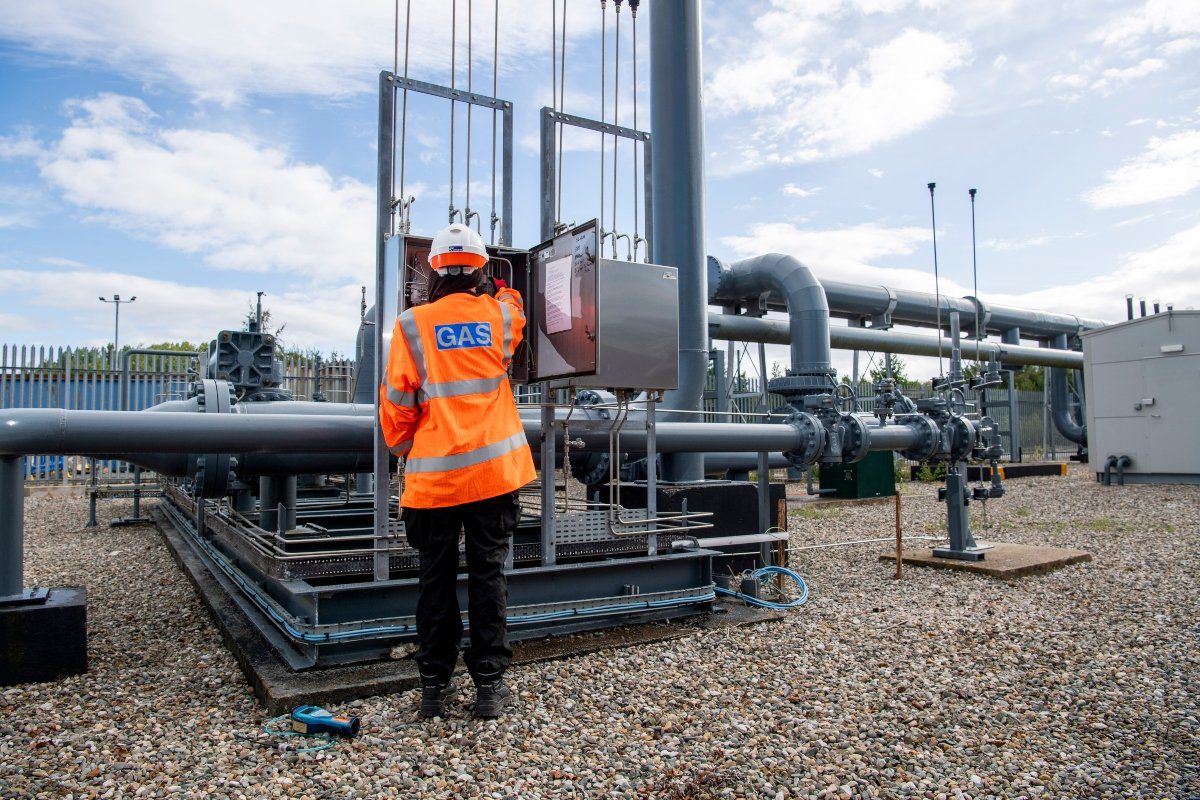Torrential rain and high winds killed at least five people and caused damage worth millions of dollars in New Jersey in July alone, but the fate of a bill that would require fossil fuel companies to pay for past damages from the changing climate and future resilience measures remains uncertain.
The state’s Climate Superfund Act would hold fossil fuel companies responsible for knowingly emitting at least 1 billion tons each of greenhouse gases between the start of 1995—the year when the United Nations held its first climate-change conference—and the end of the calendar year when the bill takes effect.
Within two years of passage, it would require the State Treasurer to assess damages for the state and its residents resulting from greenhouse gas emissions and then direct each emitter to compensate the state for those damages.
The compensation may total $1-2 billion per year or approximately $40 billion over 25 years, said state Sen. John McKeon (D-Essex), one of the bill’s leading sponsors in the Senate.
“The climate has warmed and these cataclysmic storms are going to become regular as opposed to once every hundred years,” McKeon said in an interview. ”They come with damage and loss of human life. Does the taxpayer pay, or do the folks who were responsible and knowingly responsible for climate change ante up?”
McKeon and other supporters say the “polluter pays” principle that requires corporate polluters rather than taxpayers to pay for environmental damage under the federal Superfund Act of 1980 should be extended to damage that’s caused by greenhouse gases emitted by industrial activity.
The bill has been advanced by committees in both chambers of the Democrat-controlled legislature. But with lawmakers not due to meet again until after the November elections, it’s unclear whether there would be enough time for the full legislature to pass it and then have Gov. Phil Murphy, also a Democrat, sign the bill before he leaves office at the end of his second term in January 2026.
If the bill becomes law, New Jersey would become the third U.S. state to seek compensation for climate-related damages from companies that are alleged to be responsible for their long-term sale of gasoline and other petroleum products.
Vermont was the first state to pass a Climate Superfund Law in May 2024, followed by New York in December. Both have prompted lawsuits by the Trump administration, which says they violate the federal Clean Air Act and the Commerce Clause of the U.S. Constitution.
Vermont and New York have also been sued by the American Petroleum Institute and the U.S. Chamber of Commerce.
State legislators in California, Maryland and Massachusetts are also considering climate superfund laws.

The New Jersey bill, introduced in September 2024, was first modeled on Vermont’s law but is now closer to New York’s version, McKeon said. New Jersey’s bill sets a specific limit, at least 1 billion tons, for the amount of carbon emitted by individual companies between 1995 and the last day of the year the bill takes effect. The funds would be spent on adaptation and resilience projects such as seawall construction and wetlands restoration.
Vermont’s law, by contrast, requires state officials to calculate the amount of climate-related damage caused by fossil-fuel companies. New York’s version assesses climate damage starting in 2000, and aims to raise $75 billion over 25 years.
McKeon said New Jersey’s generally left-leaning politics bode well for the bill’s prospects. “We have a Democratic governor and Democratic majorities in both houses of the Legislature. New Jersey is a little different from the hard-right politics that seem to have taken over the nation.”
Should the New Jersey bill become law, its supporters expect new legal challenges from the pro-fossil fuel Trump administration and from the petroleum industry.
“I wouldn’t expect less,” said state Sen. Bob Smith (D-Piscataway), another lead sponsor of the bill, and chair of the senate Environment and Energy Committee. But he predicted that federal courts would at least consider the claim that fossil fuel companies should compensate states for the costs associated with climate change.
“The federal courts I don’t think—yet—are overwhelmingly so politicized that the case wouldn’t get a fair shot,” he said. “It’s very, very factual; it’s clear what the oil majors did to promote even more fossil fuel consumption.”
New Jersey, whose coastal communities were ravaged by Hurricane Sandy in 2012, is especially vulnerable to the effects of climate change due to its dense population and heavily developed coastline. Climate researchers say the seas are rising along the Jersey Shore higher than the global rate, while the land is sinking.
But in mid-July, the state’s Department of Environmental Protection rolled back a rule it had previously proposed that would have raised the required elevation of new buildings in flood-prone areas by five feet above a flood level set by the Federal Emergency Management Agency. The new rule lowered the elevation level to four feet and reduced the amount of coastal land subject to building standards under a flood-hazard law.
DEP officials said the changes were proposed because of a down-shift in forecasts for sea-level rise and temperature, and in light of about 3,000 public comments received since the rule was published a year ago. Environmentalists slammed the proposed change as an abandonment of the state’s responsibility to protect against climate effects, while the business community said the new plans don’t go far enough in rolling back the new elevation requirement.
For now, the Climate Superfund bill has only 14 cosponsors in the Senate out of 40 seats, and 31 cosponsors out of 80 seats in the Assembly.
The measure also faces headwinds from the business community, which argues that fossil fuel companies should not have to pay retroactively for business activities that were legal and necessary.
The New Jersey Business and Industry Association told a legislative panel in March that the bill would “do nothing” to reduce greenhouse gas emissions or slow climate change, and that there is no credible evidence that the activities of fossil-fuel companies caused the alleged damage.
This story is funded by readers like you.
Our nonprofit newsroom provides award-winning climate coverage free of charge and advertising. We rely on donations from readers like you to keep going. Please donate now to support our work.
Donate Now
“If the legislature enacts this bill, it will drive up costs to consumers, both at the pump and in their utility bills,” said Ray Cantor, a government affairs officer at the association. “Advocates who claim you can impose billions of dollars of liabilities on businesses and not expect that to be passed on to consumers are either being disingenuous or fooling themselves.”
The bill is also struggling to get widespread support from municipalities, whose support is essential, said Smith, because they face high costs such as rebuilding flood-ravaged roads or relocating residents who have been displaced from homes by falling trees or raging floodwaters.
As of this month, just 46 of New Jersey’s 564 municipalities have approved resolutions supporting the bill. The latest to express support earlier this month was the City of Plainfield, a central New Jersey community of some 55,000 people where a total of four people died in fierce storms on July 3 and 14.
On July 3, two people died in a moving car when a tree fell on it in high winds, said Abby Levenson, the town’s business administrator. Falling trees also fell on houses, and ripped up streets and sidewalks, causing millions of dollars in damage and putting new demands on public officials.
Less than two weeks later, as much as eight inches of rain deluged the town during a “very short period,” sweeping away a car carrying two women, who died, Levenson said.
To help pay for repairs to public property, the City of Plainfield issued $5 million in bonds, while a benefit concert raised $95,000 to help people whose homes were damaged, although the latter sum won’t come close to covering the actual cost, Levenson said. She said private storm victims are hoping the Federal Emergency Management Agency will compensate them for the storm damage.
Plainfield officials would also like to increase the capacity of a retention basin to absorb increased stormwater, but that requires funding, which could come from the Climate Superfund Act, if passed and implemented, Levenson said.
Asked whether she attributed the recent storms to climate change, Levenson said it’s hard to avoid reaching that conclusion. “We do believe that plays a big role in it,” she said. “There’s definitely a changing weather pattern, and we do believe that it’s related.”
For now, Plainfield has been traumatized by the violence and frequency of recent storms, and is bracing for more, Levenson said.
“The town has done a really good job of coming together as a community but it has been very tragic and very scary,” she said. “Everybody is on edge about when the next storm is coming.”
The storms and their fatalities in Plainfield, said Ben Dziobek, a climate activist, are stark reminders of the Trump administration’s climate denial and the need for corporations to contribute to the costs of past climate damage and future resiliency.
“Trump is gutting EPA, he is gutting all of our resilience programs, and he is gutting them in places like Plainfield where two women died in their car,” said Dziobek, executive director of the Climate Revolution Action Network, a youth organization that advocates for passage of the Climate Superfund Act. “This is going to be on the backs of average New Jerseyans; they did not emit that much carbon.”
About This Story
Perhaps you noticed: This story, like all the news we publish, is free to read. That’s because Inside Climate News is a 501c3 nonprofit organization. We do not charge a subscription fee, lock our news behind a paywall, or clutter our website with ads. We make our news on climate and the environment freely available to you and anyone who wants it.
That’s not all. We also share our news for free with scores of other media organizations around the country. Many of them can’t afford to do environmental journalism of their own. We’ve built bureaus from coast to coast to report local stories, collaborate with local newsrooms and co-publish articles so that this vital work is shared as widely as possible.
Two of us launched ICN in 2007. Six years later we earned a Pulitzer Prize for National Reporting, and now we run the oldest and largest dedicated climate newsroom in the nation. We tell the story in all its complexity. We hold polluters accountable. We expose environmental injustice. We debunk misinformation. We scrutinize solutions and inspire action.
Donations from readers like you fund every aspect of what we do. If you don’t already, will you support our ongoing work, our reporting on the biggest crisis facing our planet, and help us reach even more readers in more places?
Please take a moment to make a tax-deductible donation. Every one of them makes a difference.
Thank you,




